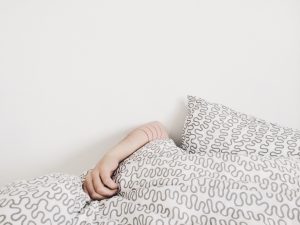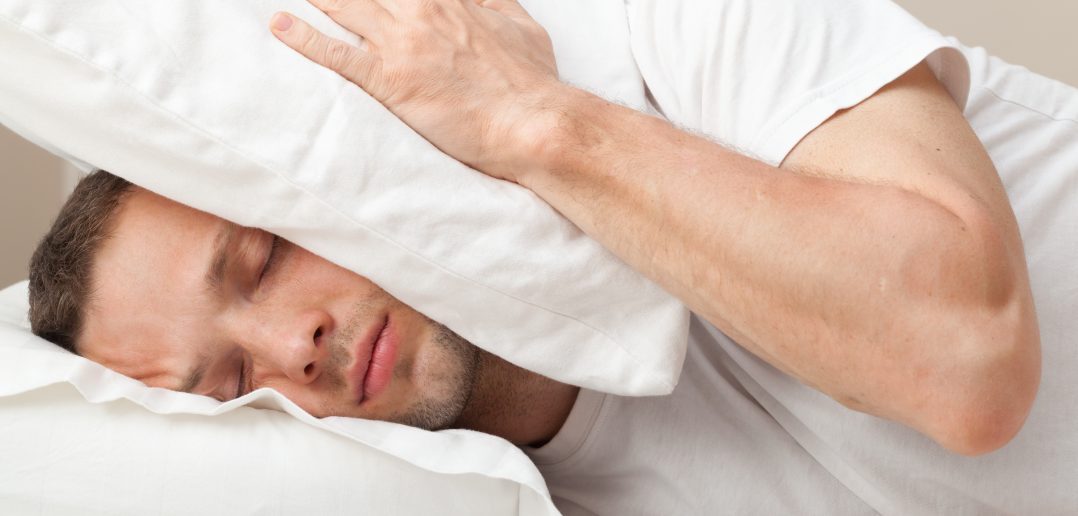
Using your computer, laptop or smartphone late at night can and will have an effect on your sleep quality
Insomnia has reached epidemic proportions – this isn’t surprising in a culture that values productivity and activity above all else, and shuns the idea of rest and relaxation. For many people, resting means watching TV, browsing the internet or engaging with some kind of electronic device that is anything but restful for the brain and the body.
The problem is that sleep is absolutely essential for basic maintenance and repair of the neurological, endocrine, immune, musculoskeletal and digestive systems. Inadequate rest impairs our ability to think, to handle stress, to maintain a healthy immune system and to moderate our emotions. It’s associated with heart disease, hypertension, diabetes, depression, anxiety and weight gain.
How Is Sleep Linked To Weight Control?
The truth is, you can eat a perfect diet, take exercise and nutritional supplements, but if you’re not sleeping well you really won’t be able to achieve the weight loss and weight control you’re hoping for.
Recent studies have shown that even one night of poor sleep can result in dramatic changes in appetite and food intake. Researchers now believe that sleep deprivation is the single best predictor of weight problems and obesity in children.
Sleep is absolutely essential for basic maintenance and repair of the neurological, endocrine, immune, musculoskeletal and digestive systems

If you feel like this when you try and get out of bed, you’re not getting enough sleep or your sleep quality is poor, leaving you exhausted and irritable on a morning
Exactly how lack of sleep affects our ability to lose weight involves various factors linked to what we eat and what happens inside our bodies after we’ve eaten.
Firstly, sleep deprivation upsets the hormones that control appetite, namely ghrelin and leptin. Ghrelin is the hormone that tells us when to eat and leptin is the hormone that tells us to stop eating. Research has shown that when we are sleep-deprived, we produce more ghrelin and less leptin, which means we will feel the urge to eat more often without enough of the hormone that tells us we’re full and should stop eating. It’s easy to see how this leads to an increase in appetite, overeating and weight gain.
Secondly, multiple studies have shown that sleep deprived individuals not only want to eat more, but that they make bad choices in terms of the food they select. In the real world this means you’ll have sugar cravings and be driven towards carb-laden comfort food, because you’re looking for a quick fix to replace the energy you’re lacking from not getting enough sleep.
Thirdly, once the food is inside your body, not getting enough sleep means you’re more likely to store more of what you eat as fat, because you are less sensitive to the insulin that is produced. Insulin helps control blood sugar and how much we produce determines how much of our food is stored as fat. Being less insulin sensitive means we need to produce more of it to do its job, meaning more fat storage.
It is clear that improving the amount and quality of the sleep you get could be an effective way to boost your weight loss efforts, and therefore improving sleep habits should be an integral part of any weight loss programme.
Sleep deprived individuals not only want to eat more, but that they make bad choices in terms of the food they select
How To Get A Good Night’s Sleep
- Go to bed earlier. You’ve no doubt heard the saying “an hour before midnight is worth two hours after”. Well there really is some truth in that because in the early part of the night (i.e.10pm – 2am), the majority of our sleep cycles are composed of deep non-REM sleep (stages 3 and 4) and very little REM sleep. This is important because it is during stage 3 and 4 sleep that our bodies regenerate and repair tissue.
- Create a bedtime routine. Stick to the same routine every evening, involving relaxing activities such as having a warm bath, writing a journal or a to do list for the next day, reading and deep breathing.
- Reduce exposure to artificial light before bed. Artificial light disrupts the circadian rhythm and suppresses melatonin production. Melatonin naturally increases after it gets dark and during the night to enable us to fall asleep and stay asleep throughout the night. The blue light emitted by phone, tablet and computer screens tricks our brains into thinking that it’s daytime, upsetting our melatonin secretion.
- Don’t use a computer, smart phone or tablet for at least one hour before going to bed
- Use blackout blinds to make your bedroom as dark as possible.
- Cover your digital alarm clock or get an analog clock
- Turn off all digital devices that glow or give off any type of light
- Increase exposure to natural light. Make sure you get enough natural light during the day to help regulate your circadian rhythm.
- Get outside for a walk in the natural daylight as early in the day as possible – remove sunglasses to let light into your face
- Take your lunch break outside rather than at your desk
- Keep all curtains and blinds open during the day to let the daylight in
- Invest in a light box during the dark, winter months
- Make your bedroom comfortable. To help get to sleep quickly, and prevent frequent waking
- Make sure your room isn’t too warm – most people sleep best in a slightly cool room
- If you can’t escape noise, use earplugs or download some white noise or soothing sounds to play to drown out the noise
- Make sure your bed is comfortable – use comfortable bedding, replace or wash pillows regularly, and if you often wake with a stiff neck or sore back, it may be time to invest in a new mattress
- Don’t be too full or hungry when you go to bed. Some people sleep better after a light dinner rather than one that leaves them feeling too full – this is especially true for those with digestive issues. Others – like those with a tendency toward low blood sugar – do better with a balanced snack before bed to prevent blood sugar levels dropping too low during the night, which is a common cause of night-waking – a smoothie can be a good choice, see recipe (Chris, link to the bedtime smoothie recipe here).
- Don’t exercise too close to bedtime – this can raise cortisol levels, which suppresses melatonin production.
- Avoid caffeine after 2pm – research suggests that this is the cut off time to prevent its stimulatory properties from disrupting to sleep.
- Keep your blood sugar balanced. Eat protein with each meal and avoiding refined carbohydrates. Avoid low carb meals in the evening though – including a good portion of unrefined carbohydrates, such as sweet potatoes, at dinnertime can help improve sleep.




